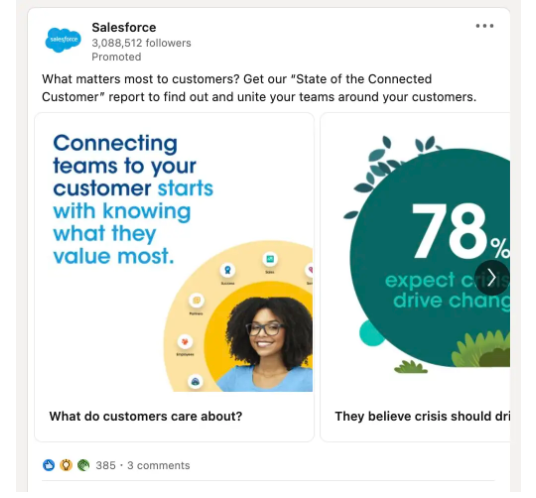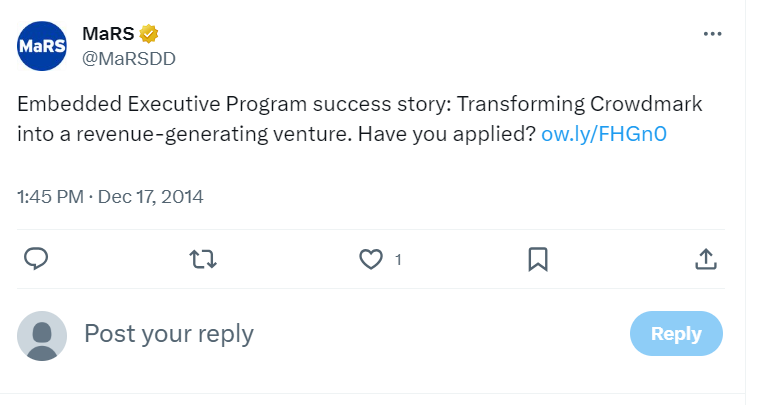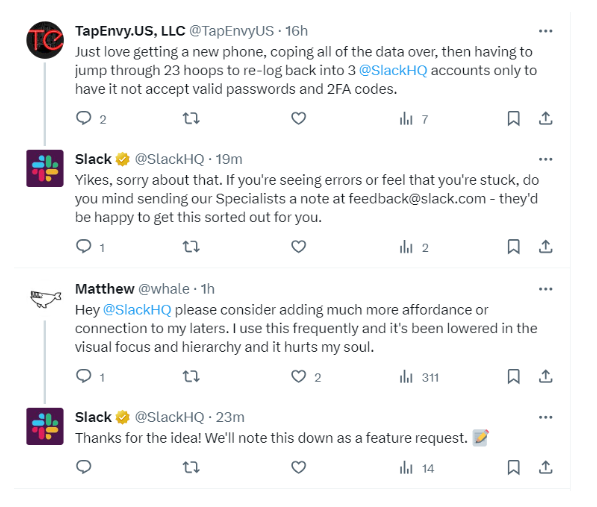
Content
How to use social media to drive engagement and leads
Oct 30th, 2023Why should B2B leverage social media?
When it comes to the world of professional services, it’s easy to underestimate the role of social media. Often associated with selfies, trending hashtags, and viral TikTok dances, these platforms might seem like unlikely allies for B2B endeavours. However, as we move further into the digital age, it becomes increasingly clear that social media harbours a goldmine of lead generation potential for the savvy business professional.
In 2023, a staggering 72% of marketers have attested to the lead generation prowess of social media. This highlights that, when harnessed correctly, social media can do much more than just strengthen existing client relationships – it can also attract new ones. Transforming your social media channels into a lead generation powerhouse is simpler than you might think.
Boosting engagement on your channel
Depending on the nature of your business, there’s a social platform out there that resonates with your target audience, be it Facebook, LinkedIn, Instagram, Twitter or even TikTok. Choosing the correct and most profitable platform for you is, however, only a fraction of the strategy battle. The real challenge emerges once actively posting, contending with a meagre three likes on another industry report post that seems to gather dust.
So, how do we tackle this engagement drought, especially in the professional services arena? Here are some strategic tips to boost engagement:
- Analyse Content: Stay updated with the latest trends and sought-after content in your industry by analysing your competitors’ pages.
- Interactive Content: Spice up your posts with polls, quizzes, and Q&A sessions to foster active participation and increase visibility.
- Hashtags: Use relevant hashtags to expand your reach and connect with trending topics.
- Engage with Your Audience: Respond to comments and actively engage with your audience to build a sense of community.
- Behind-the-Scenes Insights: Provide a glimpse into your daily operations or team activities for a personal touch that resonates.
Once you’ve established a foothold within your community, it’s time to look beyond and employ strategies that broaden your reach and connect with new audiences. This is where social media lead generation steps in.
What is social media lead generation?
Social media lead generation is the art of strategically using platforms such as LinkedIn, Twitter, or Facebook to find and connect with individuals and businesses seeking the professional expertise you offer. By curating engaging content, utilising targeted ads, and showcasing your credibility, social media becomes a standout for nurturing valuable leads that can help grow your professional service business.
Mastering the art of lead generation on socials
Five key tactics to succeed:
1. Engaging content
Content is king, and rules the social realm too. Maintaining a strong thought leadership position in the market is paramount for professional services. And when it comes to delivering thought leadership content, few can rival Deloitte, who consistently shares daily insights and expertise.
By offering downloadable content and compelling lead magnets such as podcasts, reports, whitepapers, and articles, Deloitte not only attracts potential clients but establishes itself as an authority in their field across their social channels.
2. Retargeting campaigns
Social media retargeting ad campaigns bring an exciting dimension to lead generation, with 70% of consumers more likely to convert to sale, compared to a first time display ad. They work wonders by reigniting the interest of users who’ve previously shown curiosity in your products or services. Imagine it as a gentle nudge to guide them deeper into the sales funnel. These campaigns have a personal touch, adapting content to suit individual tastes and behaviours, which makes conversions all the more likely. Plus, the precise tracking and analytics they offer empower businesses to gauge the impact of their lead generation strategies and make smart, data-driven improvements.
Salesforce sets a brilliant example of LinkedIn retargeting in action. With retargeted ads, Salesforce adeptly shows potential customers the real-world advantages of their product, supported by compelling data and statistics.
Source : Later
3. Influencer partnerships
Collaborating with industry influencers allows firms to gain the trust and credibility influencers have in their niche. HubSpot partnering with digital marketing influencer Neil Patel, is a prime example of influencer marketing’s lead generation potential to amplify your brand’s authority.
By sharing daily marketing insights in their “Marketing School” YouTube series, they attracted leads through valuable web resources, nurturing them with informative content and converting them into loyal customers.
4. Case studies
With 92% of consumers reading online reviews and testimonials before considering a purchase, it comes as no surprise case studies should play a key role in your content marketing for professional services.
By highlighting a challenge that is common with your target audience, and breaking down exactly how your business would address and solve that problem, you are not only demonstrating the value of your service, but boosting your overall brand credibility.
MaRS Discovery District posts case studies on Twitter to effectively push people towards a desired action.
When your audience relates to the challenges and connects with the client in your case study, they’re more likely to act, leading to an initial consultation. This interaction often makes your brand their top choice for problem-solving.
5. Social listening
The practice of social listening empowers companies to keenly identify client needs, engage proactively, and foster trust, ultimately enhancing lead generation. Slack, a renowned business collaboration platform, facilitates seamless daily communication for countless organisations.
What truly sets Slack apart is their exceptional responsiveness to tweets. Their responses aren’t canned, robotic replies but rather tailored, helpful solutions that genuinely address the user’s concerns. In a landscape where many businesses churn out generic, impersonal responses, Slack has solidified its reputation as a company deeply committed to its users’ needs.
Tools for tracking
In the pursuit of effective lead generation on socials, tracking tools are essential. They provide insights to refine your approach ensuring that you are taking full advantage of your social media tactics. Let’s explore some key tools to help you navigate this dynamic terrain:
- Social Analytics: Tap into the built-in analytics of major social media platforms to gain valuable data on post performance, audience demographics, and engagement metrics.
- Google Analytics: Utilise this robust web analytics tool to monitor website traffic, conversion rates, and user behaviour driven by your social media campaigns.
- Meltwater: A comprehensive solution that delivers real-time monitoring, trend identification, competitive analysis, influencer targeting, and content optimization. All of these elements coalesce to fuel effective lead generation for professional services.
These tracking tools will be your guiding light, offering the data-driven insights necessary to refine and enhance your approach. With the right tools at your disposal, you can consistently measure your progress and make informed decisions to secure a steady flow of qualified leads for your professional services.
Final thoughts
In today’s digital age, the influence of social media is undeniable. And when wielded correctly, these platforms can serve as a bridge between your target audience and the services you provide..
By combining engagement strategies with these proven lead generation tactics, professional services can bolster their ability to attract, nurture, and convert leads effectively.










